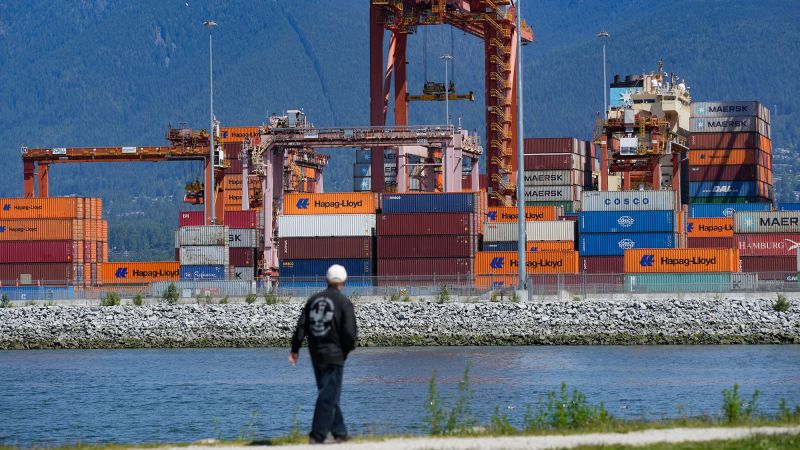President Donald Trump ceased trade talks with Canada and will soon announce a new tariff rate the country will have to pay, he said in aTruth Social poston Friday.
The decision to end negotiations, which have been ongoing for several months, came after Canada announced a digital service tax, Trump said, calling it “a direct and blatant attack on our Country.”
“Based on this egregious Tax, we are hereby terminating ALL discussions on Trade with Canada, effective immediately. We will let Canada know the Tariff that they will be paying to do business with the United States of America within the next seven day period,” he said.
Digital services taxes are a way for countries to tax online services, in contrast to taxes on physical products. Countries with these taxes can collect revenue from large companies that operate online — even if the business is unprofitable. American firms, especially Big Tech companies such as Meta, Apple, Google, Amazon and Microsoft, are disproportionately affected by DSTs, according to a report published last year by the nonpartisan Congressional Research Service.
Trump has taken particular issue with DSTs throughout trade negotiations with other countries, commonly referring to them as “non-tariff trade barriers.” Canada has a new DST that is set to take effect on Monday that will be retroactive to 2022.
Several Canadian businesses and groups CNN has spoken to have been pushing the government not to move forward with the tax, fearing they could cause trade tensions to escalte between the US.
Canada is the top buyer of American goods, importing $349 billion worth last year, according to Department of Commerce data. Meanwhile, Canada shipped $413 billion worth of goods to the US last year, the third-highest source of foreign goods.
Levying higher tariffs on Canada would likely cause the country to retaliate by imposing higher tariffs on American goods. That would take a toll on both countries’ economies.
Prime Minister Mark Carney’s office told CNN the Canadian government is considering its response.
At the start of his second term, Trump threatened to impose a 25% tariff across all Canadian exports, with rates going even higher for specific products.
However, as it stands, most Canadian goods have been exempt from those 25% tariffs, as long as they comply with the United States-Mexico-Canada Agreement he negotiated in his first term.
The biggest exceptions, with some fine print, are the 25% tariffs on all foreign cars, car parts, steel and aluminum. Trump later doubled the tariff on all steel and aluminum imports to 50%. Goods coming from Canada that were not USMCA-compliant have faced a combined 50% tariff rate.
In response to those auto tariffs, Canada levied a 25% tariff on US-made vehicles that aren’t compliant with USMCA. Canada also retaliated against Trump’s initial 25% steel and aluminum tariffs by rolling out a 25% tariff on roughly $43 billion worth of US goods, including whiskey, sporting gear and household appliances.
Stocks dropped lower after Trump’s Friday afternoon post. The Dow was up 191 points, or 0.4%, after rising as much as 580 points earlier. The S&P 500, on the verge of closing at a new record high, turned negative, falling 0.06%. The tech-heavy Nasdaq also dipped into the red and fell 0.2%. The S&P 500 and Nasdaq had risen as much as 0.76% and 0.71%, respectively, earlier.
This is a developing story and will be updated.
